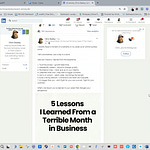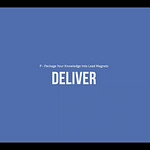Their Problem
Once you’ve defined your customer, you must locate a problem she’s facing. You could help Grandma Ethel with her knitting, find her a date at eighty, or prevent her from getting scammed.
If you aren’t sure what problems to solve or are overwhelmed with the number of them, I’ve got three growth catalysts for you to consider.
Bigger is Better
The bigger your customer’s problem, the better. Massive problems reap massive appreciation when solved—and that means more $$$. So, a careful assessment is a must. If we slack, we might select a problem that doesn’t mean much to our customers, and we’ll be stuck with an empty bank account.
Helping a couple save their marriage is an example of a big problem. People will pay big money for your solution. On the other hand, the issue of fingernail clippers not cutting straight is small and will never get you the same kind of money.
But atomic problems like that can earn you a good buck, too. In such a case, it is the pool of customers that needs to be big. You’re not likely to find people willing to spend $3,000 on a nail clipper, but if you can relieve six hundred people of crooked toenails for $5 each, you’re doing just as well.
“Bigger is better” is a creed to remember.
Smaller is Faster
Small tasks are delivered faster. Teaching someone to fix her résumé is much easier than saving her marriage. A resume is updated immediately, and your customers will send out job applications the same day. But it may take months or years to know whether you’ve helped save a marriage.
Start out with a problem that is annoying but speedily solved. You will have a higher likelihood of success.
First in Series Bonus
If you solve someone’s first problem, this customer will likely return to you. For example, if you help a couple get their first date, you can also help them decide if they should marry. Then, you can help them with their wedding planning, child-rearing, marriage counseling, and other relationship advice.
This is an exponential bonus, an unfair advantage in business.
If you have to choose between two problems and one is first in a series of problems, then I’d lean toward the first one.















Share this post